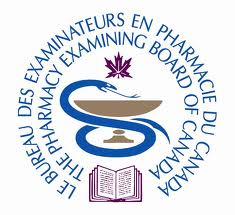Drugs for Enlarged Prostate May Raise Risk of Aggressive Cancer
The U.S. Food and Drug Administration is calling for new warning labels on a class of drugs used primarily to treat enlarged prostates, because the medications may raise the risk of developing an aggressive form of prostate cancer.
In a statement released Thursday, the agency said the drugs involved include popular medications sold under the brand names Proscar and Propecia (sold by Merck & Co.) and Avodart and Jalyn (sold by GlaxoSmithKline).
According to the FDA, almost 5 million men were prescribed one of these medications between 2002 and 2009. Of these, nearly 3 million men were between the ages of 50 and 79.
The agency is advising doctors not to start patients on these drugs until prostate cancer -- which can mimic the symptoms of an enlarged prostate -- and other urological conditions have been ruled out.
According to the agency, this new warning is based on the results of two large prostate cancer trials.
Although these trials did not include Propecia, which is prescribed to treat hair loss in men, its label is also being updated. However, the FDA said "the applicability of the Avodart and Proscar studies to Propecia, is currently unknown."
All of these drugs are part of a class of medications called 5-alpha reductase inhibitors (5-ARI). According to the FDA, Proscar, Avodart and Jalyn are approved to treat symptoms of enlarged prostate, while Proscar and Avodart are also approved to reduce the risk of urinary retention or surgery related to an enlarged prostate. Propecia is a lower-dose version of Proscar.
Merck issued a statement Thursday on the FDA ruling.
"Merck stands behind the demonstrated safety and efficacy of Proscar [finasteride, 5mg] and Propecia [finasteride, 1mg]. Both products have been prescribed to millions of men, with Proscar prescribed to those suffering from benign prostatic hyperplasia (BPH or enlarged prostate) since 1992, and Propecia prescribed to men with male pattern hair loss since 1997," the company statement said. "Merck's goal is to ensure the product labeling includes all relevant trial information to help health-care professionals and their patients make informed treatment decisions."
Less than a year ago, GlaxoSmithKline asked the FDA to approve the use of Avodart to prevent prostate cancer, although the FDA declined that request in January. The company based its reasoning on the results of one of the trials on which the agency is now basing its new warning.
In addition to this new side effect, recent research has shown that Proscar, Propecia and Avodart are all associated with increasing the risk of erectile dysfunction in men who take the medications.
Commenting on the FDA warning, prostate cancer expert Dr. Anthony D'Amico, chief of genitourinary radiation oncology at Brigham and Women's Hospital in Boston, said, "I think that the warning is appropriate. The risk is very small, but not zero."
"What both studies show conclusively is there is about a 1 percent increase in being diagnosed with high-grade prostate cancer if you got these drugs -- even though you are less likely to get a low-grade cancer."
Why that is is not clear, D'Amico said. "But I think the warning is fair," he added.
The drugs really do work in preventing prostate cancer, D'Amico said. "You have to weigh the 24 percent reduction against the 1 percent increased incidence of high-grade disease," he said.
"These drugs should only be used in men who have an additional indication to take them beyond prostate cancer prevention," D'Amico said.



Comments